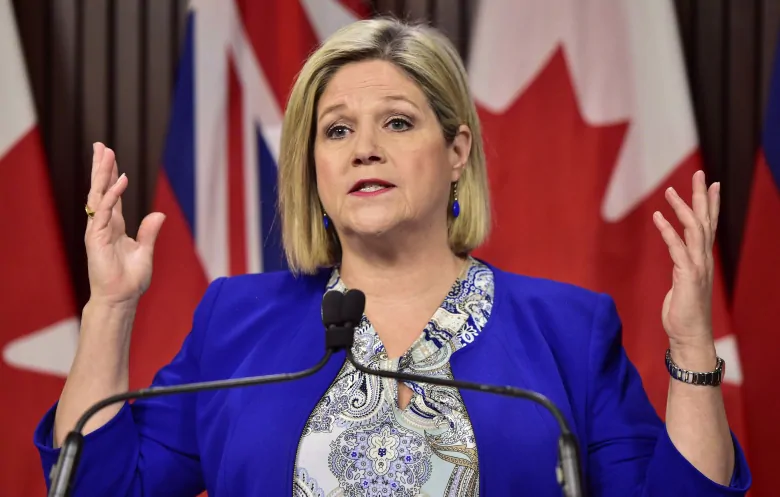Ontario will provide a $4 per hour salary increase for front-line workers as part of temporary pandemic payment to recognize their efforts in the fight against COVID-19, Premier Doug Ford said on Saturday.

Ontario will provide a $4 per hour salary increase for front-line workers as part of a temporary pandemic payment to recognize their efforts in the fight against COVID-19, Premier Doug Ford said on Saturday.
Ford said the $4 per hour increase, “pandemic pay premium,” will be paid on top of existing hourly wages and it is a financial acknowledgement of their dedication, long hours and the health risks they face. The top-up, in place as of Friday, will continue for 16 weeks.
“Today, we’re recognizing their incredible effort. We’re recognizing their sacrifice,” Ford told reporters at a news briefing at Queen’s Park.
As well, Ford said employees working more than 100 hours a month would receive lump sum payments of $250 per month for each of the next four months. This bonus means eligible employees working an average of 40 hours per week would receive $3,560 in additional compensation, Ford said.
“It’s our way of saying thank you,” he added.
Those eligible for pandemic pay are staff at long-term care homes, retirement homes, emergency shelters, supportive housing, what the province calls social services congregate care settings, as well as workers at correctional institutions and youth justice facilities, and those providing home and community care.

It also includes some staff in hospitals, those caring for adults with development disabilities and those who provide support services, such as cooks and cleaners.
Treasury Board President Peter Bethlenfalvy said more than 350,000 employees across Ontario will qualify for the pandemic pay.
Asked why it took until now to increase pay, Ford said he wished he could have increased salaries from the start, but the province did not have the capacity.
Ford said the federal government played a “massive role” in making a salary increase possible. He thanked the government for its help, but said the province needs a sustained commitment.
“We need them to do their part when it comes to protecting the most vulnerable in long-term care homes,” Ford said.
“The situation we’re all facing is unprecedented and it’s extremely serious.This crisis has clearly shown the deeply-rooted, longstanding cracks in our long-term care system. We need to do better. And we will do better.”
Ford said the pandemic pay increase will enable facilities to attract more staff.
He added that he and his wife were going to visit his mother-in-law through the window at her long-term care home and will personally thank the workers.
“They deserve every single penny, 10 times, if we had the capacity.”
Raise for front-line workers long overdue, NDP says
NDP Leader Andrea Horwath, for her part, said the raise for front-line workers is long overdue.
“I’m asking Doug Ford to make this additional pay retroactive to the day the state of emergency was declared, so that people’s sacrifice and hard work to keep us all safe is recognized,” she said in a statement on Saturday.

Service Employees International Union, which represents 60,000 health-care workers in Ontario, echoed the call, saying it advocated for a pay increase at the start of the pandemic.
“While the news of this increase will be welcomed by health-care workers who are struggling financially, it should be made retroactive to include those who are on unpaid leave as a result of quarantine or contracting COVID-19 themselves,” SEIU Healthcare President Sharleen Stewart said.
“Our government can demonstrate if they truly believe these workers are heroes by making this temporary increase permanent.”
Ford said his government wasn’t able to give workers a raise until the fe

